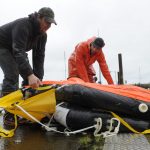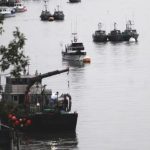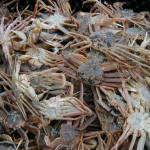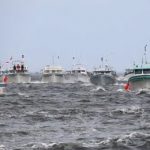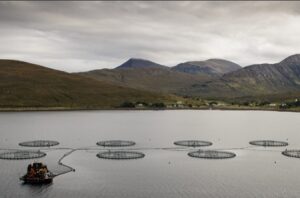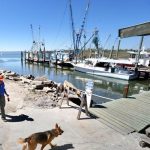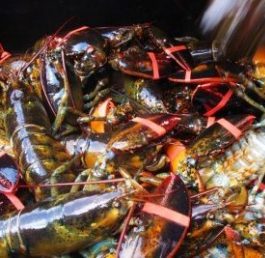Tag Archives: Boris Worm
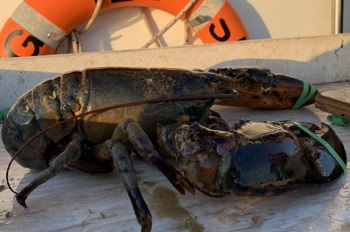
Lobster: the last, best fishery – Part 2, The new cod?
“Another likely contributing factor is the large amount of food the fishery provides to lobsters, as many lobsters escape traps after having fed on its bait; it has been said that we are basically ranching lobsters,” says Rochette. Also, as reported in Part 1, increasing water temperature has so far been 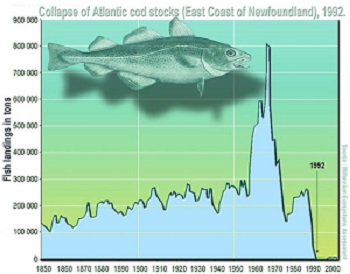 favourable to lobsters in Canada, given we are in the northern part of the species’ range. But for how long can that last, as waters continue to warm? And what lessons have we learned from the collapse of the groundfish stocks? Could lobsters be the new cod? photos, graphs, video, even Boris Worm! >click to read< Part 1, November 26, 2020 >click to read< 13:18
favourable to lobsters in Canada, given we are in the northern part of the species’ range. But for how long can that last, as waters continue to warm? And what lessons have we learned from the collapse of the groundfish stocks? Could lobsters be the new cod? photos, graphs, video, even Boris Worm! >click to read< Part 1, November 26, 2020 >click to read< 13:18
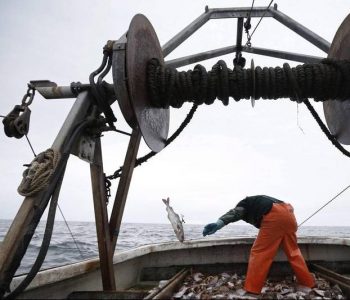
MPA’s: Trawlers allowed to fish in E.U. marine (un)protected areas – “We were surprised to find this,” said Boris Worm
Marine Protected Areas appear to not be particularly protected. At least not around Europe. A study released Thursday in the journal Science found that trawling efforts were about 36 per cent higher inside European Union Marine Protected Areas than it was outside of them. It also found that abundance of species often caught as bycatch in trawls, like sharks, skates and rays, was lower inside the heavily fished marine protected areas than outside. “We were surprised to find this,” said Boris Worm, a Dalhousie University marine ecologist who was also a senior author of the study. >click to read<19:45
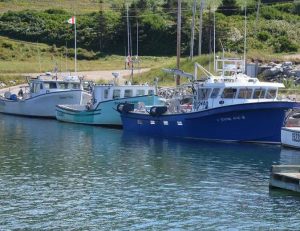
Fishermen weathering effects of climate change
The lobster off western Cape Breton didn’t get the memo about thriving in colder water. “They should have told the lobsters that this year,” said John Phillip Rankin, a fisherman from Mabou Coal Mines. “By the first of July, it was warm and they started snapping but we were after putting our traps on the wharf. They start jumping when it gets warmer. They do all right in cold water. It was a decent season but it was cold-water trapping, you could tell. Last year, it was warm right through, a better season. The landings were quite a bit higher.” >click to read<14:35
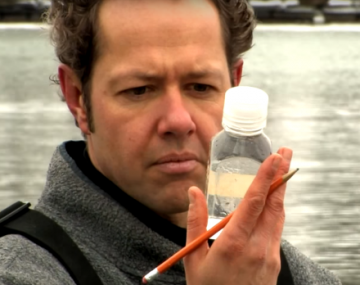
WWF Warns All Fish May Go Extinct Within Next 30 Years
In a world where the global population is close to 7.5 billion people, you can expect that the demand for food is similarly climbing at an exponential rate. The more people there, the more mouths there are to feed. One of the industries that is suffering from this increase in demand for food is the fishing industry – and in return, people are turning towards unsustainable fishing methods. The WWF warns us of a looming collapse of the ocean’s various ecosystems in the next thirty years if this kind of dangerous fishing practices continue. In a 2006 study published by Worm, et. al., >click to read<16:23
November 2, 2006 – Seafood May Be Gone by 2048, Study Says – >click to read< From FishnetUSA – This was the Pew produced headline that got extensive media play starting in November of 2006. “Unless humans act now, seafood may disappear by 2048, concludes the lead author of a new study that paints a grim picture for ocean and human health.,, >click to read<
Boris Worm The Jellyfish Guy says New York turns into some kind of modern Venice with Sea Level Rise
 Coastal communities, including those in Newfoundland and Labrador, could be drowned by significant sea level rise before the end of the century according to a new report released by the U.S. government (NOAA). Boris Worm, a marine scientist at Dalhousie University in Halifax, N.S., says a report by the American National Oceanic and Atmospheric Administration suggests sea levels could rise by 2.5 metres by the year 2100. “They were asking the question, how will any given amount of sea level rise be felt in the U.S. and what are the likely scenarios for sea level rise given current emissions,” he told CBC Radio’s The Broadcast. “They’ve come up with a range of projections, and the notable thing here is that that range of projections is a lot larger than it used to be.” Worm said less than a decade ago, the expectation was between one and two feet of sea level rise by the end of the century. “They’ve now corrected this and said it’s going to be a lot more, and it could be up to 8.2 feet,” he said. “If that comes true, it means New York turns into some kind of modern Venice, Venice turns to some kind of Atlantis, and I don’t know what it means for Newfoundland … it really means a complete rethinking of how we live close to the coast.” Read the story here 13:45
Coastal communities, including those in Newfoundland and Labrador, could be drowned by significant sea level rise before the end of the century according to a new report released by the U.S. government (NOAA). Boris Worm, a marine scientist at Dalhousie University in Halifax, N.S., says a report by the American National Oceanic and Atmospheric Administration suggests sea levels could rise by 2.5 metres by the year 2100. “They were asking the question, how will any given amount of sea level rise be felt in the U.S. and what are the likely scenarios for sea level rise given current emissions,” he told CBC Radio’s The Broadcast. “They’ve come up with a range of projections, and the notable thing here is that that range of projections is a lot larger than it used to be.” Worm said less than a decade ago, the expectation was between one and two feet of sea level rise by the end of the century. “They’ve now corrected this and said it’s going to be a lot more, and it could be up to 8.2 feet,” he said. “If that comes true, it means New York turns into some kind of modern Venice, Venice turns to some kind of Atlantis, and I don’t know what it means for Newfoundland … it really means a complete rethinking of how we live close to the coast.” Read the story here 13:45
Filmmaker John Hopkins says Bluefin tuna becoming ‘just like pets’!
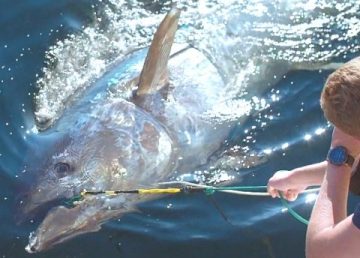 A new documentary on the Atlantic bluefin tuna says the giant fish are exhibiting unusual behaviour after they migrate into the Gulf of St. Lawrence, where some are being hand-fed by fishermen in the open ocean. “One of the things that has happened is they have lost their fear of human beings. They are just like pets. They are being fed over the side by fishermen,” said filmmaker John Hopkins of Square Deal Productions. The behaviour made filming the tuna much easier, he said, but it is puzzling. Hopkins’s National Film Board documentary, Bluefin, premieres at the Atlantic Film Festival on Wednesday. The 53-minute film chronicles the resurgence of bluefin tuna near the fishing port of North Lake, P.E.I., billed as the tuna capital of the world. Dalhousie University oceanographer Boris Worm likens the tuna returning to the Gulf of St. Lawrence to a last herd of buffalo roaming after the animal was wiped out everywhere else on the plains. Read the story here 11:26
A new documentary on the Atlantic bluefin tuna says the giant fish are exhibiting unusual behaviour after they migrate into the Gulf of St. Lawrence, where some are being hand-fed by fishermen in the open ocean. “One of the things that has happened is they have lost their fear of human beings. They are just like pets. They are being fed over the side by fishermen,” said filmmaker John Hopkins of Square Deal Productions. The behaviour made filming the tuna much easier, he said, but it is puzzling. Hopkins’s National Film Board documentary, Bluefin, premieres at the Atlantic Film Festival on Wednesday. The 53-minute film chronicles the resurgence of bluefin tuna near the fishing port of North Lake, P.E.I., billed as the tuna capital of the world. Dalhousie University oceanographer Boris Worm likens the tuna returning to the Gulf of St. Lawrence to a last herd of buffalo roaming after the animal was wiped out everywhere else on the plains. Read the story here 11:26
Cooking Carlos in Canada while Boris Worm wants surveillance for all!
 Carlos Rafael posted a $1-million bond earlier this month to get out of jail and now he’s back in the fish business. Rafael’s a New England seafood legend whose life story reads like a movie script. His cautionary tale also helps explain why Dalhousie University scientist Boris Worm wants fishing vessels to be tracked more closely. But I’ll get back to that later. Rafael, born 63 years ago in Portugal’s Azorean Islands, is a legend in the New England fishing industry. He owns more than 40 vessels and has been described in U.S. media reports as a “pillar” of the seafood industry in New Bedford, Mass. Rafael’s defence team says he’s a good guy. He helped his mom and dad fix their home on the island of Corvo. He hosts an annual island fundraising meal for orphans — and for widows too, I’m sure. Read the rest here 13:30
Carlos Rafael posted a $1-million bond earlier this month to get out of jail and now he’s back in the fish business. Rafael’s a New England seafood legend whose life story reads like a movie script. His cautionary tale also helps explain why Dalhousie University scientist Boris Worm wants fishing vessels to be tracked more closely. But I’ll get back to that later. Rafael, born 63 years ago in Portugal’s Azorean Islands, is a legend in the New England fishing industry. He owns more than 40 vessels and has been described in U.S. media reports as a “pillar” of the seafood industry in New Bedford, Mass. Rafael’s defence team says he’s a good guy. He helped his mom and dad fix their home on the island of Corvo. He hosts an annual island fundraising meal for orphans — and for widows too, I’m sure. Read the rest here 13:30
International overfishing study argues every fishing vessel should be tracked
 A team of international ocean scientists is urging policy makers around the world to start tracking every vessel on the planet — the same way ride-hailing service Uber tracks cars. A report released today in the journal Science says the anonymity granted to vessels at sea creates perfect conditions for overfishing and the destruction of entire ocean ecosystems. Boris Worm, a Dalhousie University ecologist and a senior author of the report, said the key may be a satellite tracking system known as AIS, or automatic identification system. Read the rest here 09:27
A team of international ocean scientists is urging policy makers around the world to start tracking every vessel on the planet — the same way ride-hailing service Uber tracks cars. A report released today in the journal Science says the anonymity granted to vessels at sea creates perfect conditions for overfishing and the destruction of entire ocean ecosystems. Boris Worm, a Dalhousie University ecologist and a senior author of the report, said the key may be a satellite tracking system known as AIS, or automatic identification system. Read the rest here 09:27
Pew’s Greenberg and Worm Bomb – When Humans Declared War on Fish
 ON Friday we humans observed V-E Day, the end to one part of a global catastrophe that cost the planet at least 60 million lives. But if we were fish, we would have marked the day differently — as the beginning of a campaign of violence against our taxonomic classes, one that has resulted in trillions of casualties. Oddly, the war itself was a great reprieve for many marine species. Read the rest here 13:51
ON Friday we humans observed V-E Day, the end to one part of a global catastrophe that cost the planet at least 60 million lives. But if we were fish, we would have marked the day differently — as the beginning of a campaign of violence against our taxonomic classes, one that has resulted in trillions of casualties. Oddly, the war itself was a great reprieve for many marine species. Read the rest here 13:51
EDITORIAL: Reviving groundfish
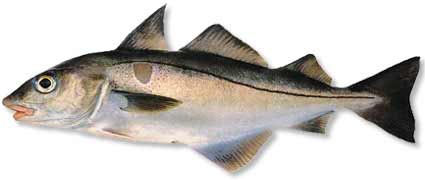 Even heavily overfished, nearly depleted groundfish stocks can fully recover. That, says Dalhousie University marine biology professor Boris Worm, is the underlying message in the stunning rebound of haddock stocks — from near collapse to waters teeming with fish — on Georges Bank. Read more@chronicleherald 17:26
Even heavily overfished, nearly depleted groundfish stocks can fully recover. That, says Dalhousie University marine biology professor Boris Worm, is the underlying message in the stunning rebound of haddock stocks — from near collapse to waters teeming with fish — on Georges Bank. Read more@chronicleherald 17:26
Fished out – Atlantic fishing nations fail to act to protect tuna and sharks.
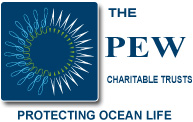 The ICCAT nations did maintain catch limits on Atlantic bluefin tuna. They also announced steps to force large fishing vessels to carry a unique identification number beginning in 2016, after many cases of illegal fishing off West Africa, with ships often changing names and flags in order to evade sanctions over illegal fishing. “Sharks is where they really dropped the ball,” said Elizabeth Wilson, director of the Pew Charitable Trusts’ international ocean policy unit, which had observer status at the gathering. “There was very little discussion about sharks. They barely even talked about it in their meetings, which is very disappointing,” she said in a phone interview after the meeting ended. more@thestar 10:22
The ICCAT nations did maintain catch limits on Atlantic bluefin tuna. They also announced steps to force large fishing vessels to carry a unique identification number beginning in 2016, after many cases of illegal fishing off West Africa, with ships often changing names and flags in order to evade sanctions over illegal fishing. “Sharks is where they really dropped the ball,” said Elizabeth Wilson, director of the Pew Charitable Trusts’ international ocean policy unit, which had observer status at the gathering. “There was very little discussion about sharks. They barely even talked about it in their meetings, which is very disappointing,” she said in a phone interview after the meeting ended. more@thestar 10:22
Plenty of Fish in the Sea? Melissa Pandika calls herself a journalist? Heh heh yeeeah OK!
Why you should care– Within our lifetimes, the world’s supply of fish could collapse entirely. That’s right: no more sushi, no more pet goldfish and moreover, devastated economies and food supplies in the developing world. Link Malissa Pandika put her name on this swill that is the hottest twitter trash being passed around to every engo groupy that is networked together. That’s a huge amount of uninformed, thirsty for alarmist ecoblab people that will read it without understanding it, or of the disservice to real journalism. It’s built on a bunch of WWF, Boris Worm dogma.
In the comment section, beneath the stacking tweets that will be endess, stands one man that dissected this pile of crap. Bob Vannase destroys the “article” with fact. It would go unnoticed unless pointed out. 17:43
It’s like, I keep puting this up! Climate change pushing lobster north, study says
![]() The study, co-authored by Dalhousie University marine biology professor Dr. Boris Worm, compiled 40 years worth of data to explain several significant marine species shifts seen in the Atlantic and Pacific oceans. “The question we asked was ‘Are fish on the move?’ — generally — and if they are, are they moving in the direction the temperature is moving or are they doing something else?” he said. more@cbcnews 20:13
The study, co-authored by Dalhousie University marine biology professor Dr. Boris Worm, compiled 40 years worth of data to explain several significant marine species shifts seen in the Atlantic and Pacific oceans. “The question we asked was ‘Are fish on the move?’ — generally — and if they are, are they moving in the direction the temperature is moving or are they doing something else?” he said. more@cbcnews 20:13
Sable Island’s cod killer? The new plan to slaughter seals blames seals for the cod fishery collapse

No fish Left in the Ocean by 2048!!! – Media hype gets you more citations? Well, it did for this fisheries paper. By Dr Bik

 Media hype gets you more citations? Well, it did for this fisheries paper. Y’all might remember the slight media coverage (ha!) of a very controversial fisheries paper published in 2006: “Impacts of biodiversity loss on ecosystem services” by Boris Worm and others, Trevor Branch, having long been captivated by fisheries research and having deep knowledge of this Worm et al. controversy, sat back in his chair, pented his fingers, and had an epiphany: “I’ve got it! We should analyze citation patterns for Worm et al. (2006)!” (a written dramatization of possibly real events). So he did. And the results are pretty awesome. continue!
Media hype gets you more citations? Well, it did for this fisheries paper. Y’all might remember the slight media coverage (ha!) of a very controversial fisheries paper published in 2006: “Impacts of biodiversity loss on ecosystem services” by Boris Worm and others, Trevor Branch, having long been captivated by fisheries research and having deep knowledge of this Worm et al. controversy, sat back in his chair, pented his fingers, and had an epiphany: “I’ve got it! We should analyze citation patterns for Worm et al. (2006)!” (a written dramatization of possibly real events). So he did. And the results are pretty awesome. continue!






 Continuous reverences to the Nothing but Jellyfish 2048 dogma that was used in Pews “Oceans of Abundance” to compel Obama to create the National Ocean Policy Bureaucracy Builder, The doom date flicked out of recent angler social media blogs like the Grim Reaper’s scythe: By 2048 all saltwater fish will be extinct due to overfishing, lives!
Continuous reverences to the Nothing but Jellyfish 2048 dogma that was used in Pews “Oceans of Abundance” to compel Obama to create the National Ocean Policy Bureaucracy Builder, The doom date flicked out of recent angler social media blogs like the Grim Reaper’s scythe: By 2048 all saltwater fish will be extinct due to overfishing, lives! 


























